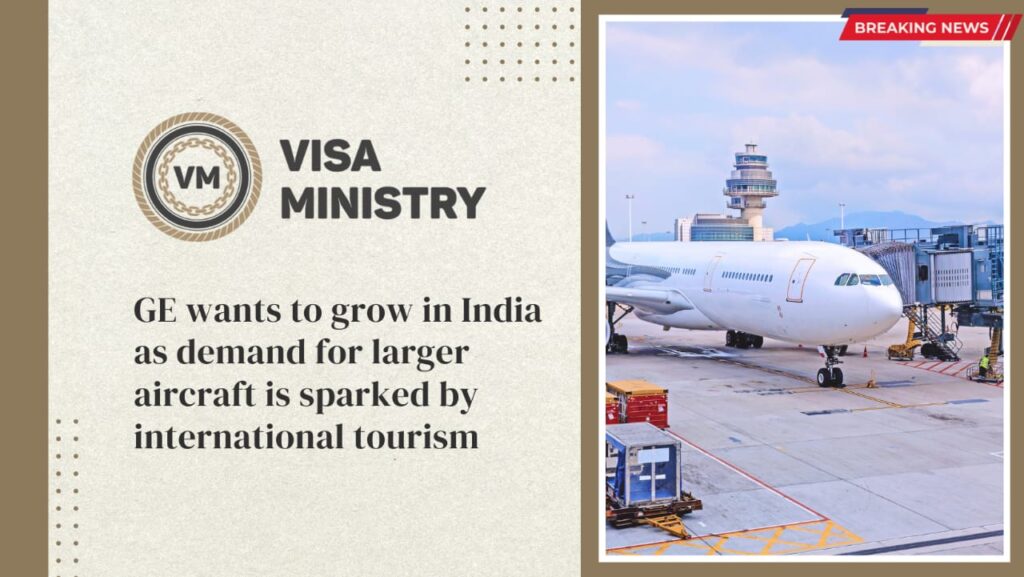A jump in foreign travel will increase demand for larger planes, which will benefit General Electric’s aviation division even more than it already anticipates from a growth in domestic air travel in India, according to its country head.
According to data from aviation analytics company Cirium, over 60% of India’s 700+ commercial aircraft are powered by engines made by GE Aerospace and partner Safran. But the majority of them are domestically-focused narrowbody planes.
Only 50 widebody planes are currently in use by airlines in India, which has 1.4 billion inhabitants, but GE expects this to change as more Indians choose to splurge on travel.
More widebody aircraft are obviously needed, according to Vikram Rai, GE Aerospace’s national head for India and Indonesia, who also said it would be “the next path of growth.”
According to GE, India’s foreign passenger traffic will increase from 70 million in 2019 to 125 million by 2030. India’s middle-class population is projected to increase to 700 million from roughly 450 million within the same time period, driving up demand.
“That is higher than the United States’ population, which has 5,500–6,000 commercial aircraft in operation compared to India’s 700. Thus, there is a possibility for substantial expansion, according to Rai.
Following a recent record agreement to provide 800 fuel-efficient LEAP engines for 400 Air India narrowbody planes as part of a mega plane order, GE has a positive view for India. Of the 70 widebody planes ordered, GE will also provide the engines for 30 of them.
This gives GE a monopoly on the narrowbody jet market in India, along with a pipeline of orders for 500 Airbus narrowbody jets for IndiGo and a deal to power 72 Boeing aircraft for the upstart airline Akasa.
The dominance of GE has also been strengthened by reliability problems with competitor Pratt & Whitney engines that have prompted Indian airlines to halt dozens of aircraft and compelled the biggest airline in the nation, IndiGo, to switch suppliers.
In order to propel the fifth-largest economy in the world, Prime Minister Narendra Modi wants aerospace and military to play a major role. Airbus and Boeing have just pledged to increase local manufacturing and investment.
Along with other investments, GE is enhancing its manufacturing and supply chain in the nation where it produces engine parts for export to its global factories with Tata Group. It extended its $1 billion deal with the Indian behemoth in November.
Rai claimed GE has grown its spending on components in India 20 times over the previous five years and added that it was a “strategic market for GE Aerospace” although declining to provide a perspective on potential future investments.
Source: theprint
